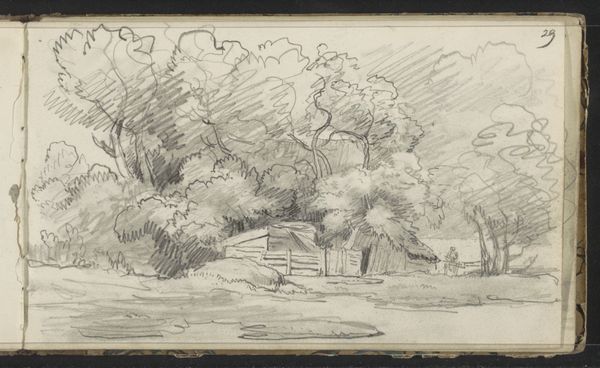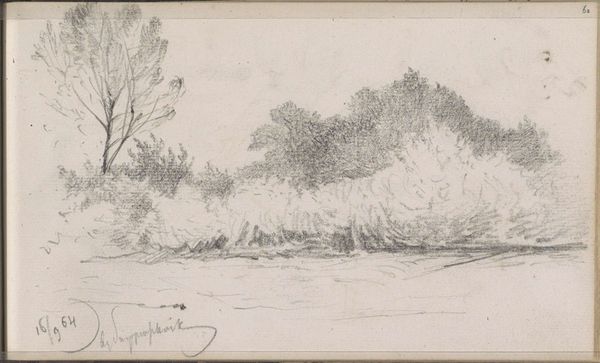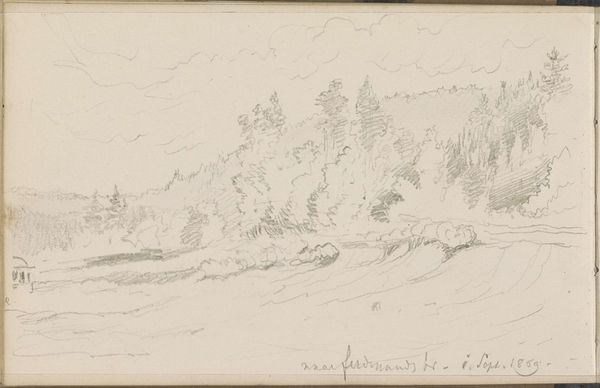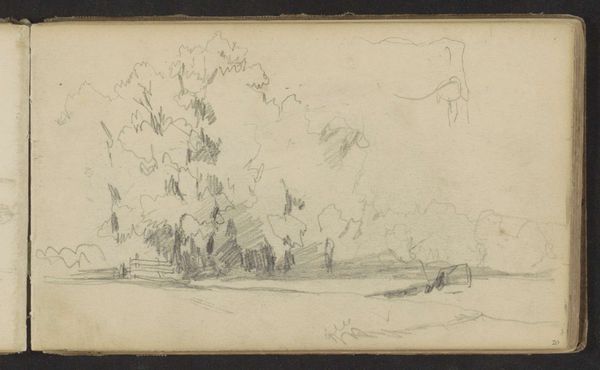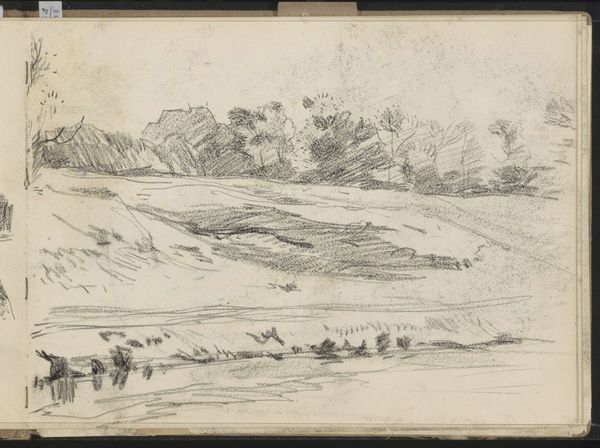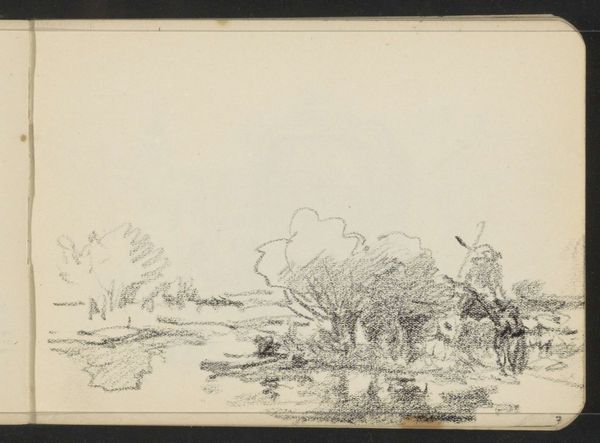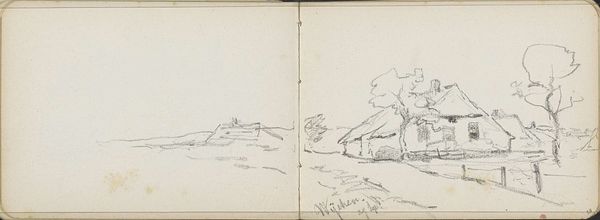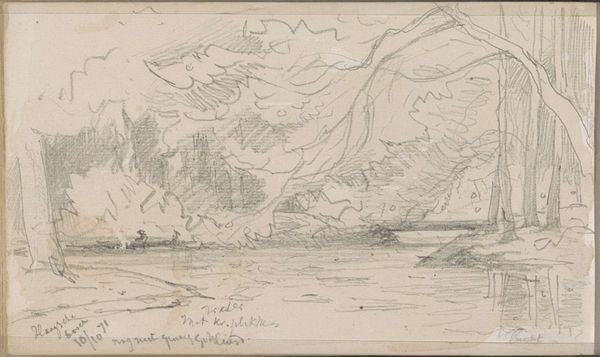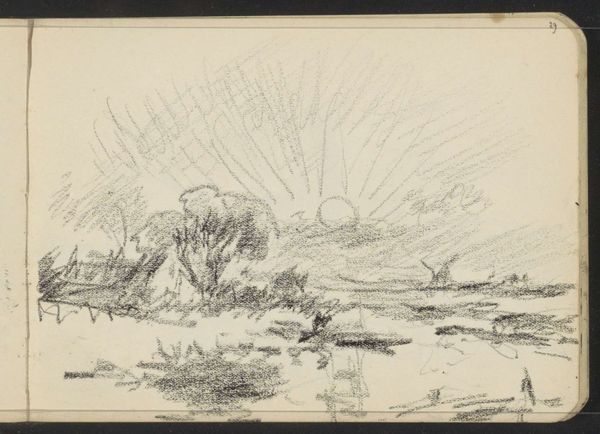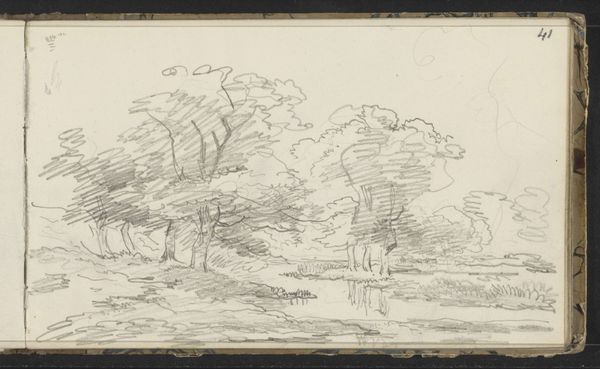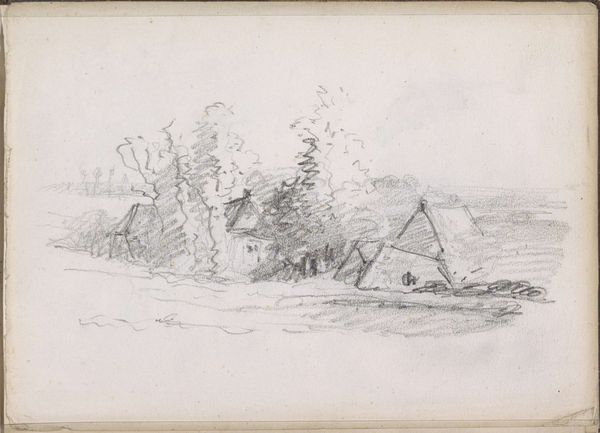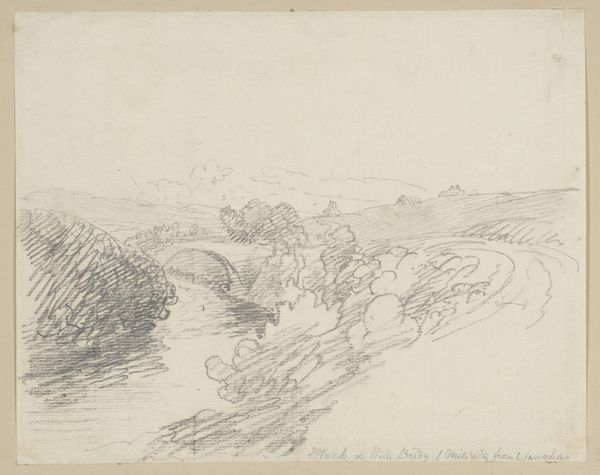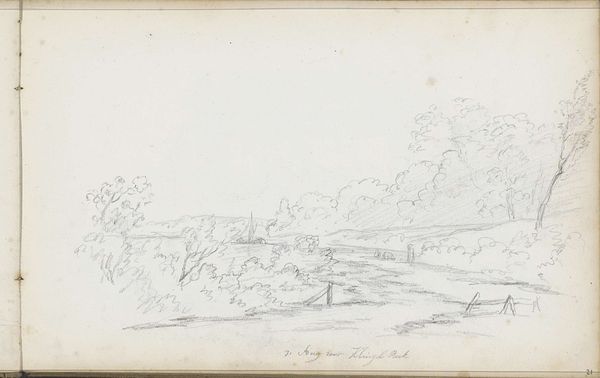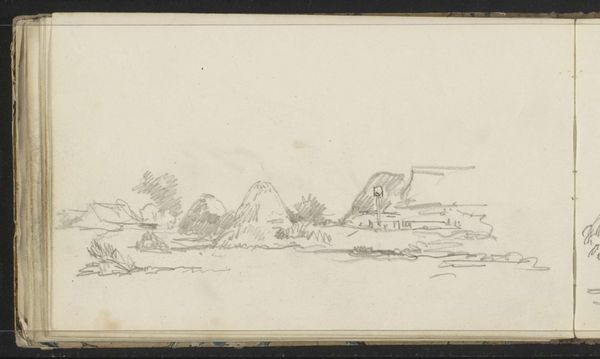
drawing, pencil
#
drawing
#
quirky sketch
#
dutch-golden-age
#
pen sketch
#
sketch book
#
landscape
#
personal sketchbook
#
ink drawing experimentation
#
sketch
#
pen-ink sketch
#
pencil
#
pen work
#
sketchbook drawing
#
storyboard and sketchbook work
#
sketchbook art
#
realism
Copyright: Rijks Museum: Open Domain
Johannes Tavenraat made this pencil drawing of a heath between Cleverberg and Trapjesweg in 1857. Heathland landscapes like this one were common in the Netherlands at the time. The direct, unadorned style is typical of Dutch art from this period, but it also reflects a wider social trend towards realism and a focus on everyday life. Instead of idealizing the landscape, Tavenraat presents it as it is. What we see here is not only the natural scenery but also how that scenery was altered by the people who lived there. This drawing can be understood as a commentary on the relationship between humans and their environment. It's a reminder that even the most seemingly untouched landscapes are shaped by human activity. To better understand the context of this artwork, further research into the agricultural practices and land use policies of the Netherlands in the mid-19th century is necessary. This artwork is a fascinating window into the social and economic realities of its time.
Comments
No comments
Be the first to comment and join the conversation on the ultimate creative platform.
